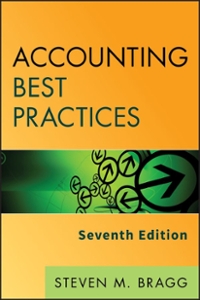Question
Suppose that X company started its operations on 1 January 2018. The unadjusted balance sheet (Historical Cost) is as follows: Assets 1 January 2018 31
Suppose that X company started its operations on 1 January 2018. The unadjusted balance sheet (Historical Cost) is as follows:
Assets
1 January 2018
31 Dec. 2018
Cash
20,000
200,000
A/R
0
40,000
Inventory
50,000
70,000
Plant and equipment
180,000
180,000
Accumulated depreciation
0
(18,000)
Land
150,000
150,000
Total assets
400,000
622,000
Liabilities
Bank overdraft
20,000
20,000
A/P
0
60,000
Tax payable
0
52,000
Provision for dividends
0
30,000
Bank loan (LT)
20,000
20,000
Total liabilities
40,000
182,000
Equity
360,000
440,000*
Total Liabilities & Equity
400,000
622,000
As a result of its operations for the year, X had the historical cost income statement (profit and loss account) as shown below:
Ending equity=
Beginning equity360000
Plus: net income110000
Plus: New investment0
Less: Dividends(30000)
Ending equity440000
X Company income statement for year ended 31 December 2007
Sales revenue
400,000
Less:Cost of goods sold
Beginning inventory
50,000
Purchases
220,000
-Ending inventory
(70,000)
Gross profit
200,000
Other expenses
Administrative expenses
(18,000)
Interest expense
(2,000)
Depreciation
(18,000)
Operating profit before tax
162,000
Tax expense
52,000
Operating profit after tax
110,000
beginning retained earnings
0
Dividends proposed
(15000)
Ending retained earnings
95,000
To adjust for changes in purchasing power we need to have details about how prices have changed during the period, and we also need to know when the actual changes took place. We make the following assumptions:
1.The interest expense and administrative expenses were incurred uniformly & throughout the year;
2.The tax liability did not arise until year end;
3.The dividends were declared at the end of the year;
4.The stock (GOODS) on hand at year end [ending inventory] was acquired in the last quarter of the year;
5.Purchases of goods occurred uniformly throughout the year;
6.Sales occurred uniformly throughout the year.
Consumer Price Index [CPI]
Year beginning 1-1-2007260
31 December 2007 280
Average for the year 270
Average for first quarter 264
Average for second quarter 270
Average for third quarter 274
Average for fourth quarter 278
Required:
Use the Current Purchasing Power Accounting (CPPA) to restates the financial statement to reflect the inflation.
Step by Step Solution
There are 3 Steps involved in it
Step: 1

Get Instant Access to Expert-Tailored Solutions
See step-by-step solutions with expert insights and AI powered tools for academic success
Step: 2

Step: 3

Ace Your Homework with AI
Get the answers you need in no time with our AI-driven, step-by-step assistance
Get Started


